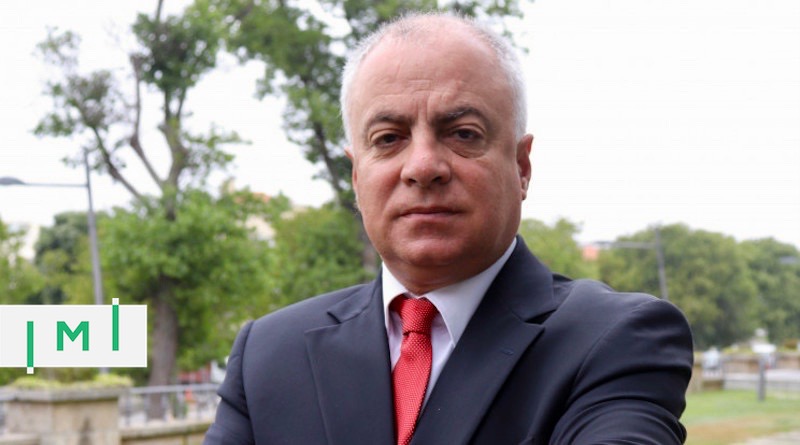Portugal Realtors’ Association Urges Caution on Golden Visa Reform
In a communiqué circulated last week, Luís Lima, President of the Portuguese Association of Real Estate Professionals and Companies (APEMIP) expresses concern that authorities will become overzealous in their pursuit to reform the ARI (colloq. the “golden visa” program) to channel a greater share of program investment toward less developed regions and non-real estate assets.
In October last year, as part of a broader outline of official plans for its second term, Portugal’s center-left government declared its intention to revise the ARI with a view to directing program funds “preferentially toward low-density regions, investment in job creation, urban requalification, and cultural heritage”.
While alternative assets are rapidly gaining favor with investors, nine out of ten golden visa applicants still pick the real estate investment option, overwhelmingly selecting properties in the country’s two major urban centers, Lisbon and Porto, where prices have grown precipitously since 2014.
Local residents, European institutions, and the local left-wing opposition have, for the last few years, pressed the government to find ways to encourage a more even distribution of investment benefits, both across geographies and sectors. While investment requirements are already lower for preferential projects (required amounts for investments scientific research, cultural heritage enterprises, and real estate in zones designated for urban regeneration, for example), the price differential has not been sufficient to materially alter investor preferences.
The government has, therefore, hinted it may widen the investment requirement gap between zones of high price pressure and areas inherently less attractive to property buyers, possibly by doubling investment requirements in Lisbon and Porto.
See also: Investor in Portugal Golden Visa Gets Citizenship After Fulfilling 35-Day Stay Requirement
Such rumors, coupled with the government’s not having included private sector associations in their deliberations, have representatives of APEMIP nervous.
“I understand this differentiation and the incentive to invest in areas that need it,” says Luís Lima. “I have long been a believer in the decentralization of real estate investment and I strongly believe in the potential of our country. However, I fear that the delimitation of the areas that will benefit from this distinction will eventually leave out regions that also need incentives for investment to reach them.”
Lima’s chief concern is that the government will implement extended price differentials based on the relative performance of metropolitan areas, rather than at the individual municipality level.
See also: Court Impels Portugal’s Govt. to Share Detailed Golden Visa Data (Including Some That Don’t Exist)
“Portugal is a small country with good roads,” continues Lima. “Cascais, for example, is in high demand among foreign investors (particularly Brazilians) and is about 50 km from Lisbon. For foreigners, the distance becomes irrelevant. Just as it is sold in Cascais, it can be sold in Alentejo. What is far for us, for foreigners is not.”
“Not shocked” if asking price doubles in Lisbon and Porto
Lima acknowledges slight adjustments may be warranted to ease some of the pressure on property hotspots, perhaps by raising the investment requirements in these areas to as much as a million euros. What he fears, however, is that the government might put an end to investment in Porto and Lisbon altogether.
“I recognize that there may be a need for adjustments in real estate pressure zones, such as Porto and Lisbon. Given current demand and supply shortages, it is normal for prices to rise. I would not be shocked that in these particular municipalities, the minimum investment value went from 500 thousand euros to one million. However, I would absolutely disagree with the ending of the possibility to invest in these municipalities under the program. It would be a very negative sign for the market. What message would you give to investors? Who can tell you that in the areas that will now be differentiated, this possibility will not end as well? Changing the rules in the middle of the game will always be negative, and the signal will always be worse than the eventual benefits of the measure.”
Want to know more about the Portuguese golden visa program? To see recent articles, statistics, official links, and more, visit its Program Page. To see which firms can assist with applications to the program, visit the Residence & Citizenship by Investment Company Directory.
Image credit: Idealista.pt
Christian Henrik Nesheim is the founder and editor of Investment Migration Insider, the #1 magazine – online or offline – for residency and citizenship by investment. He is an internationally recognized expert, speaker, documentary producer, and writer on the subject of investment migration, whose work is cited in the Economist, Bloomberg, Fortune, Forbes, Newsweek, and Business Insider. Norwegian by birth, Christian has spent the last 16 years in the United States, China, Spain, and Portugal.



